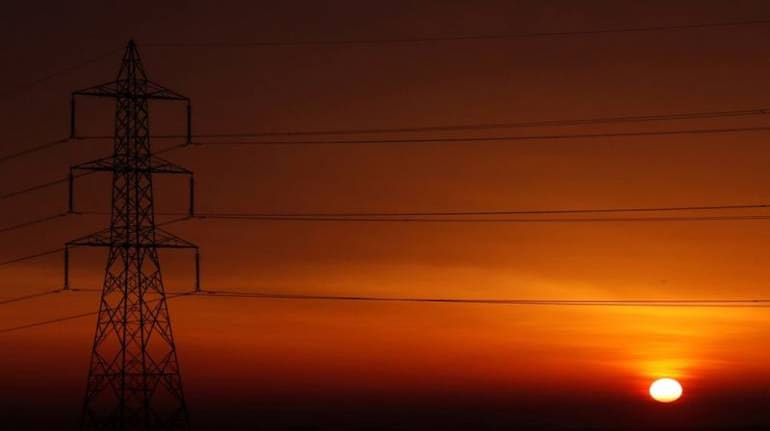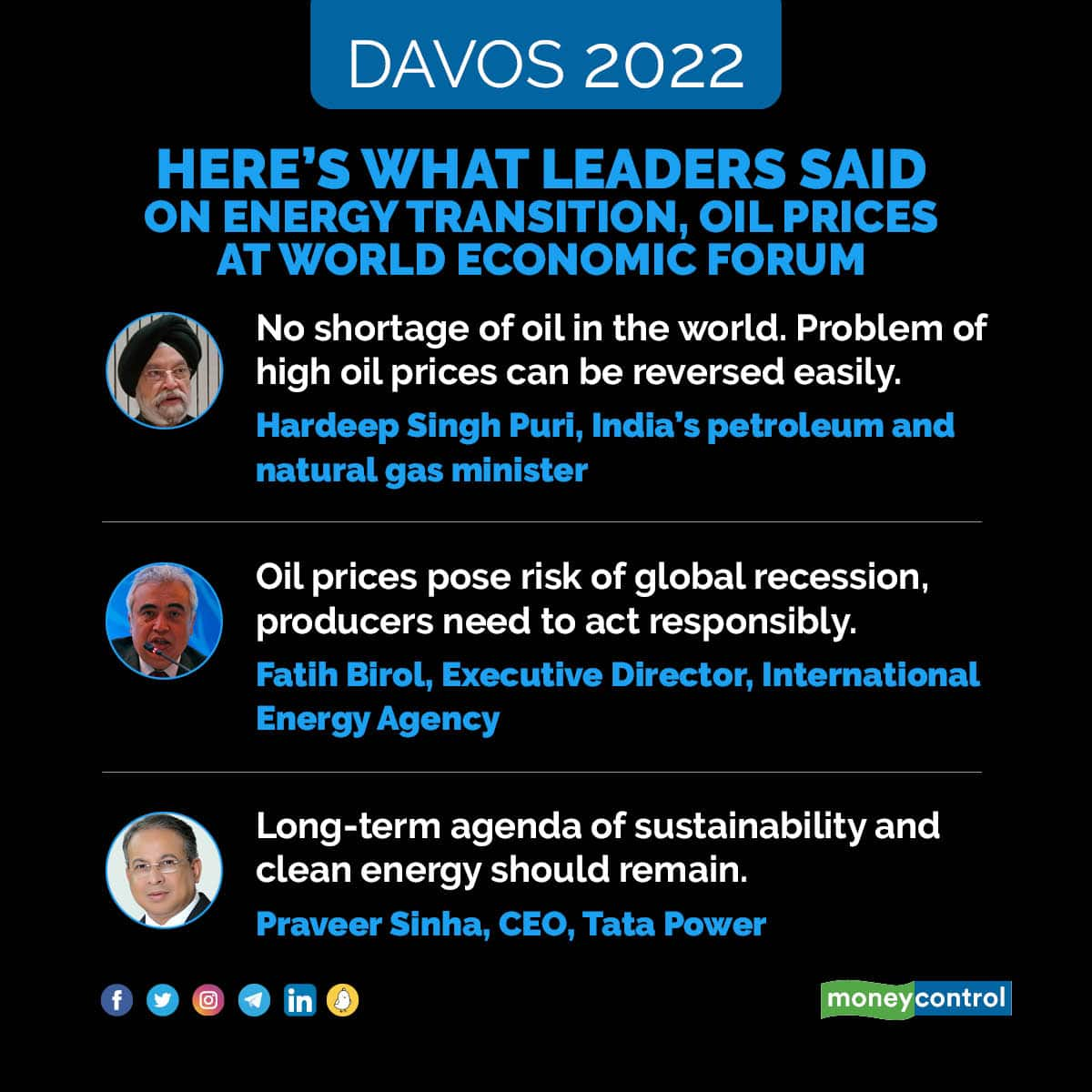



When business leaders, political class, intellectuals and activists from across the globe gathered for the first in-person World Economic Forum in two years in the Swiss resort town of Davos during the week, they had a lot to worry about.
As the world was taking baby steps toward normalcy after being battered by a once-in-a-century pandemic, Russia’s invasion of Ukraine threw a cloud of uncertainty over the economic recovery climate with prices of crude and other commodities skyrocketing.
The war and subsequent sanctions against Russia have reshaped the global energy landscape and no one is immune from it.
India, which meets 85 percent of its energy needs through imports, too, is feeling the heat of the rising crude prices.
Not just crude prices, but the record heat this summer, too, have shone the spotlight on the urgent need for cleaner and more viable energy sources.
At Davos, India, which sent its biggest ever delegation, presented its position on critical issues such as energy crisis, health equity and food security, among others.
Indian business leaders while focussing on the economic opportunity shared plans to ramp up green energy capacity through technological innovation.
Also Read: World Economic Forum 2022 | A look at the main issues tackled in Davos
Oil prices and impact on the global economy
Oil at $110 a barrel constituted "a challenge for the entire world," oil and petroleum minister Hardeep Singh Puri said.
Crude at $110 per barrel was "not sustainable". ''The fact that it is not sustainable is seen in the countries around India. It is also being seen in Africa and Latin America," Puri said while speaking to CNBC-TV18.
 Here's what leaders said on energy transition and oil prices at Davos
Here's what leaders said on energy transition and oil prices at Davos
Global prices are of prime concern to countries like India, which meets 85 percent of its energy requirements through imports, he added.
While the oil-producing nations have their sovereign right to determine the flow of crude in the global market, the situation makes it imperative to increase the output, the minister suggested.
"Everyone should look at the fact that this is an existential threat," he said, pointing towards the soaring inflation. The international community, including India, "cannot afford to get disrupted on the current energy sources as we transition into the future", he said.
Watch Video: Petroleum minister Hardeep Singh Puri says high oil price problem can be reversed easily
Speaking to Moneycontrol at Davos, the minister said the problem of high oil prices could be reversed very easily.
''I don't think there is a shortage of oil in the world. There is a shortage of oil being released into the market,'' Puri said.
If enough oil was released, there would be a demand and supply equilibrium and prices would come down, he said.
''If it is not reversed, then we are looking at stagflation and recession has also started rearing its ugly head,'' the minister said.
Echoing his concerns, Fatih Birol, the executive director of the International Energy Agency (IEA), said oil producers needed to act responsibly to help keep a lid on prices of the key commodity or there was a risk of a global recession.
“If we don’t make a positive contribution here, we may see prices even going higher, being much more volatile and becoming a major risk for recession for the global economy,” Birol said in an interview to Bloomberg TV.
“This summer will be difficult because as we know in summer oil demand normally goes up,” he said, adding that a major question was whether demand from China would remain flat due to weakness in its economy.
Global energy prices are likely to surge once the Russian oil embargo is implemented and all 27 European Union (EU) governments agree to a proposed ban.
In its sixth set of sanctions against Russia, the EU is seeking to ban Russian oil imports within six months and refined products by the end of 2022.
Watch Video: Sumant Sinha talks shifting energy paradigm, growth in a carbon-free way, inflation and more
The shift to clean energy
India is the world's third-largest renewable energy producer but also the third-highest carbon emitter.
The transition towards clean and green energy would be slow but business leaders at Davos were of the view that a broad-based effort was on to develop clean energy technologies.
''India still has a lot of development to do, and as it grows, its carbon emission may increase from eight percent to 15 percent of global carbon emissions but we can't have that,'' said Sumant Sinha, Chairman and CEO, ReNew Power.
He said India would have to do something which no other country has done before. “India has to grow but in a decarbonised manner. We need to set a new framework for growth in a carbon-free manner,'' he said.
Non-fossil sources such as hydro and nuclear energy could be ramped up, he said. In a step towards energy transition, carbon removal technologies were also gaining traction–such as direct air capture, where the fossil fuel is burnt and instead of letting the carbon go into the atmosphere, it is stored, he said.
Praveer Sinha, CEO, Tata Power, told Moneycontrol that the company would enhance its 5GW of renewable energy capacity five times over the next five years.
The long-term agenda of sustainability and clean energy should remain despite the challenges posed by the global economy, he said.
Watch Video: Amitabh Kant on India's growth story, green hydrogen, and more
Amitabh Kant, CEO of government think-tank NITI Aayog, said the Indian economy was facing two major challenges.
First, the disruption in global supply chains and second, the US Federal Reserve’s actions that have consequences for all countries, he said.
Prices would remain high for some time across the world and inflation was not an India-specific problem, he said. The government had ushered in major structural changes and the long-term growth, reforms would have to continue, the NITI Aayog chief said.
Discover the latest Business News, Sensex, and Nifty updates. Obtain Personal Finance insights, tax queries, and expert opinions on Moneycontrol or download the Moneycontrol App to stay updated!